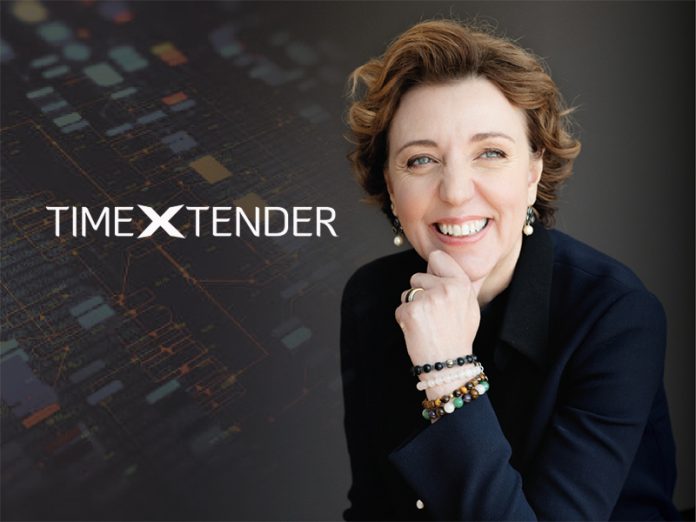By Anne Krog Iversen, Chief People, DNA & Culture Officer of TimeXtender
We hear a lot these days about corporate modernization taking place by deploying technology innovations such as cloud computing and artificial intelligence.
But there’s another type of transformation that is occurring within corporate circles that is having a profound effect on enhancing agility and innovation. These efforts are typically led by a senior business executive overseeing corporate DNA and culture. Whatever the official title, these executives are adherents to the idea of “next-generation leadership.”
Next-generation leadership is the commitment to building resilient and sustainable organizations by supporting employees to develop and achieve greater heights with innovative skills, progressive business methods, self-awareness, and emotional intelligence.
One such practice, under the guidance of next-generation leaders, that is growing in popularity is self-managed teams. In this organizational structure, employees work in a fully autonomous team. Each member shares in the responsibilities of technical leadership, management, planning, implementation and ensuring delivery of a final product or service. They are guided by purpose and driven for results, and they do so without mid-level supervision.
Some call this “people management,” but no, it’s much greater than that. It’s actually enabling people to become self-managed. With next-generation leadership, companies are directed to empower employees with freedom, responsibility, self-management techniques and transferable life skills that will help them make quality decisions for themselves and their organization.
With that in mind, how can next-generation leaders architect a corporate framework to enable the development of these skills within their workforce?
Leadership. Having the desire to put forth such a program starts with vision. It also begins with purpose to achieve key results across all levels, using corporate teams or circles and individual achievement. Today’s next-generation leaders realize that employees are a most valued asset who spend a significant portion of their life at the company, and so they inspire to invest and embolden the individual. Recent efforts by progressive business leaders have involved helping employees achieve greater life/work balance, but they’re now taking this approach to a whole other level by helping employees become self-managed.
Culture. Helping others to become self-managed begins by having employees who find the notion of personal responsibility and team alliance desirable. Frankly, it starts by recruiting and hiring the right people who will fit into the company’s culture and who will accept this value system. First, begin by aiding the right type of candidate to easily discover the company. This can be done by having a self-managed culture in place that would be enticing to select candidates, followed by sharing the corporate culture identity to the public through communication channels.
Training. Making mindfulness and awareness training available at work will help as well. This training should be regular and voluntarily so that the ideas are not forced onto people, but rather available to them once they’re ready to participate. We have found that incorporating mindfulness into one’s daily work schedule as small breaks helps them to remain focused, aware and innovative throughout the day.
Recruiting. Any good recruiting effort begins by stating clear, articulate requirements in the job description. It’s then important to scrutinize resumes and pre-screen with the right questions. Once a candidate is invited in for an interview, it’s imperative to query them on various hypothetical work scenarios to assess their responses for cultural fit. Recruiting may also include putting candidates in a team environment for the day to have them work alongside potential peers to gauge their skills for teamwork, project management, and collaboration. Doing so is essential, as having the ability to thrive and function in autonomous teams takes significant self-awareness and self-management to be able to achieve results for yourself, your team and your company. It demands that you put aside your ego and set the team results as a higher shared purpose.
Onboarding. Our job as next-generation leaders continues once a new hire begins with the company. At TimeXtender, our new hires get acclimated with our onboard training program based on “The 7 Habits of Highly Effective People” by Stephen Covey. Through The 7 Habits, we’re able to instill several important work and life lessons such as being proactive, beginning with the end in mind, and looking for win/win solutions. We apply The 7 Habits program as a platform to educate and communicate our corporate values from the outset, coupled with our voluntary mindfulness training.
Consistent communication across corporate channels is central to reinforcing corporate values and delivering feedback for the organization to learn from and act upon. Communication helps introduce voluntary mindfulness as a way to recharge habits and to help new hires and existing employees balance their day to stay focused, innovative and alert – all enabling one to make quality decisions for themselves, the team and the company.
Values. We call our company values our “core beliefs.” For instance, at TimeXtender, we simplify, automate, and execute with a core purpose and clear strategy. And, because time matters, we engage fully charged. These are TimeXtender’s core beliefs and are part of our DNA and corporate philosophy. Given our name, “TimeXtender,” we’re committed to saving time in all that we do – and we do so by automating all things that can be automated.
We do the same for the partners and customers that we serve. Our value statement for them is that we “provide instant access to corporate data” – quite essential for any company, enabling them to achieve more and make quality decisions. Our employees work alongside their colleagues each and every day with this core purpose in mind. These core beliefs are a way to help us prioritize. It’s the way we work – with purpose – and why we do what we do. This belief is paramount to having autonomous work done in teams, or what we call purpose circles.
Teamwork. To take advantage of group synergy and self-managed teams, TimeXtender is rolling out a new, innovate, agile organizational model that allows the X-People (what we call ourselves at TimeXtender) to work in cross-organizational purpose circles, customized based on an employee’s profession, function and project.
This initiative will allow for idea sharing, crosspollination, mentoring and team self-management. With this, our corporate purpose and individual purpose will become intertwined as a fundamental part of our corporate purpose talks. Each circle has an appointed circle lead with a professional focus, while the people circle will have regular purpose talks with individuals to ensure that they thrive. When initiating a purpose circle, each circle works off a set of guiding questions to consider; for example: “What’s the purpose strategy of the circle?” “What are the values?” and “How do we commit?”
Collaboration. Collaboration is a big part of TimeXtender. Our X-People meet with mentors on a regular basis to engage in 1:1 purpose and goal discussions. They present each year to the company to reflect how their own personal purpose and goals tie into the company’s purpose and strategy. Discussing their goals, values and purpose helps build direction, alignment and commitment throughout the organization, ensuring a free flow of feedback – both bottom-up and top-down.
In addition, with staff located in various parts of the world, we use technology to collaborate with X-People across projects, functions, regions and continents. And we start online meetings with a moment of silence to land, focus and connect with our fellow X-People who work across various time zones and cultures.
Uniqueness. We set out long ago to be an industry difference maker. Over the years, we’ve striven to build an advanced organization to help our employees succeed and to become more successful self-managers with a tool set of skills to help us build resiliency and to deal with life’s challenges. Our employees enjoy being part of a unique company where they have a high level of freedom and flexibility to drive results. However, freedom and flexibility requires a strong level of self-awareness and responsibility to be self-managed, and this is why we make time available for voluntary life skill tools and training during work hours.
We hear quite regularly from job candidates that our culture is what attracted them to apply. And that’s when we secure the best matches possible, when we’re able to communicate our beliefs, purpose, technology and culture clearly enough so that our purpose resonates to attract candidates that relate. As mentioned, another example of our unique identity is our practice of starting meetings with a minute of silence. This inspirational moment is part of our belief system, and the feedback from guests who join our meetings and enjoy this leisurely moment has been overwhelmingly positive.
Bigger Purpose in Mind
During our tenure on mother Earth we all aspire to living a healthy, fruitful life where we have the tools to take responsibility for our own happiness. While we spend a significant portion of our life within the boundaries of a corporation, we know that people want to strive for more than simply improving corporate revenue. They want to be part of something larger, something with a bigger purpose in mind that will pass on through generations.
With next-generation leadership, we can help them accomplish that endeavor. For many of us, this aspiration does not come naturally, it takes enlightenment, proactivity and personal responsibility that we all possess, but simply need to be awakened to. And doing so, can ultimately lead to a healthier, more resilient workforce that achieves greater corporate success for all to enjoy – as a team.
TimeXtender provides companies – in all industries – with instant access to data, enabling them to make quality business decisions with data, mind and heart. They do this for one simple reason: because time matters. TimeXtender was founded in 2006 and is privately owned, with headquarters in Denmark and the U.S. TimeXtender serves its customers, including Fortune 500, large-sized enterprises and mid-sized companies, through a global network of partners.
This article was originally published on 26 March 2020.
About the Author
 Anne Krog Iversen is the Co-Founder and Chief People, DNA and Culture Officer at TimeXtender. Along with directing the company’s business culture, she built, implemented and manages corporate mindfulness together with TimeXtender’s team-oriented X-tended leadership circle.
Anne Krog Iversen is the Co-Founder and Chief People, DNA and Culture Officer at TimeXtender. Along with directing the company’s business culture, she built, implemented and manages corporate mindfulness together with TimeXtender’s team-oriented X-tended leadership circle.


































